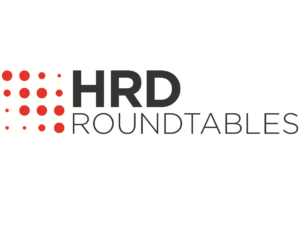Exclusive: Dame Stephanie Shirley recognises the ‘enormous responsibility’ of HRDs
- 3 Min Read
Dame Stephanie Shirley has explained how important the role of HR director is in modern business. Speaking exclusively to HRD Connect she noted that management needed to be seen as a profession of its own, but lamented slow progress within organisations to reflect this. “To be an HR director is an enormous responsibility and you […]
- Author: Owain Thomas
- Date published: Mar 1, 2016
- Categories

Dame Stephanie Shirley has explained how important the role of HR director is in modern business.
Speaking exclusively to HRD Connect she noted that management needed to be seen as a profession of its own, but lamented slow progress within organisations to reflect this.
“To be an HR director is an enormous responsibility and you have to be professional about being a director – not that you know all the nitty gritty,” she said.
“I worked as a non-exec director at John Lewis and there they were moving all their seniors around so that the finance director didn’t actually know a lot about finance. What he did was manage people who did know about finance. And that’s a transition that I noticed 20 years ago and I’ve been retired 20 years and things haven’t moved on as much as I hoped.”
Dame Stephanie also highlighted that equality in leadership would drive equality in the rest of the workforce.
She told the HR Directors Business Summit that “leadership has the most profound impact on HR, because equality will only come once there is equality in leadership – leadership shared equally.
“Leaders start things and leaders determine the criteria for leadership, and thus determine the criteria for who and who will not become a leader in the future.”
Workplace sexism
She added that while blatant sexism maybe illegal and much had disappeared, there remained huge potential for prejudice against women.
“Both men and women use the same stereotype but know that every single one of us also has unconscious bias. Hiring and promotion practices can reduce bias, and using data to see if there is bias, having clear and specific criteria for hiring, promotion and for evaluating performance, and using neutral or blind systems whenever possible.
“Company policies are very important to get equality because awareness and attitude are important, but diversity engenders more diversity.”
Listen to or download the full HRD Connect interview with Dame Stephanie Shirley
Speaking to HRD Connect after her keynote address, Dame Stephanie explained that quite often women suffered a loss of confidence when returning to work after a career break.
As a result, it was vital to support their integration back into work.
“Once you leave the workforce for whatever reason, and it is usually for family responsibilities, you do tend to lose your business confidence when you go into a large corporation whether to be interviewed or to do the job you were doing three years ago,” she said.
“That confidence that, ‘Yes, I can do this job. Yes, If can’t do it I will learn how to do it better than anyone else’ is challenged for women and we have this ‘I wonder if I can do that’ – it’s almost a false modesty. While the men whom I interview say ‘Yes, of course I can do that, absolutely’.”
However, she was against the idea of quotas for women in the boardroom and senior positions, noting that in Norway they had not resulted in more equality throughout management.
Watch the exclusive HRD Connect video interview with Dame Stephanie Shirley








